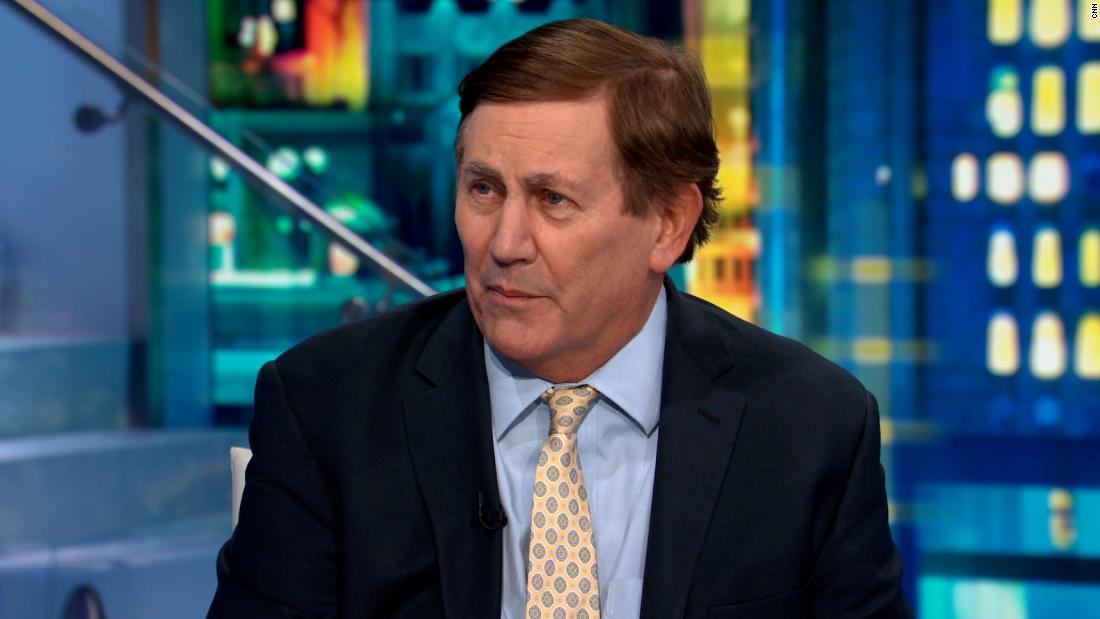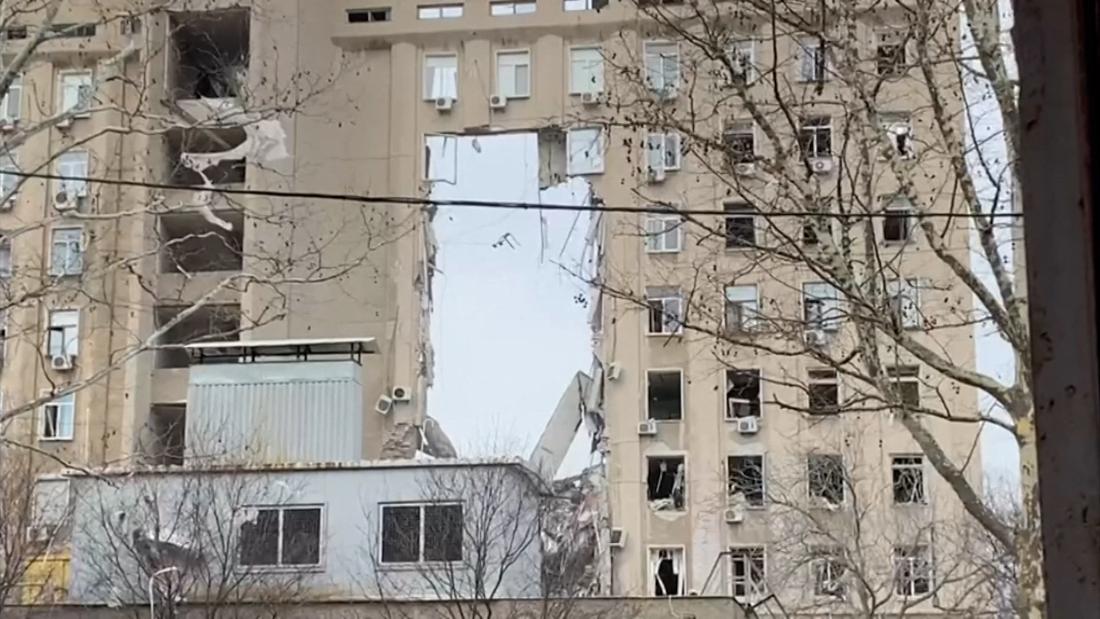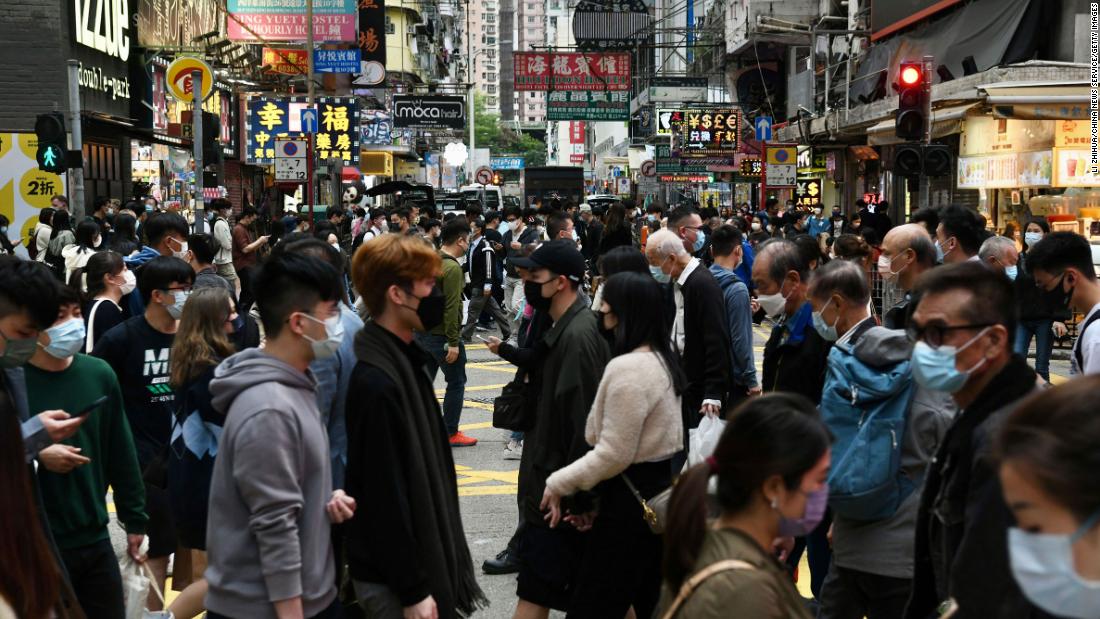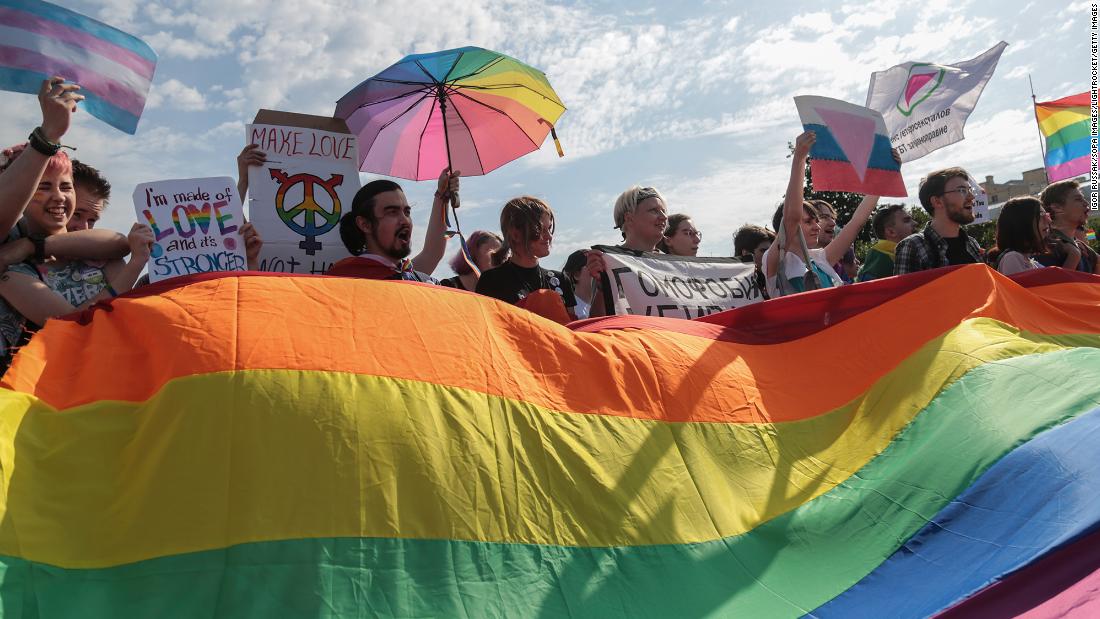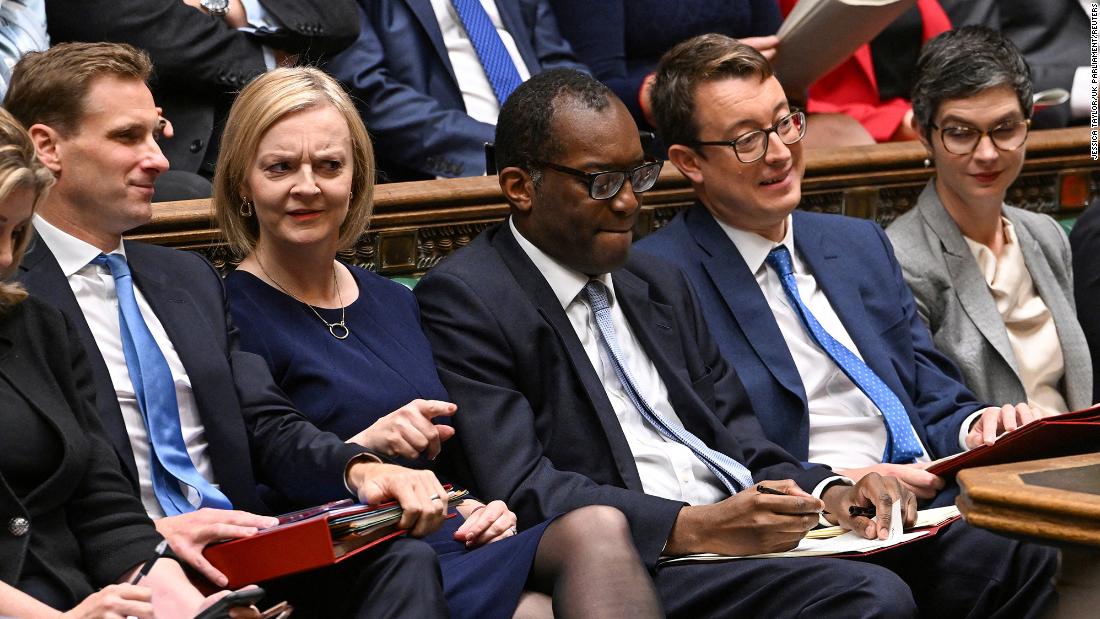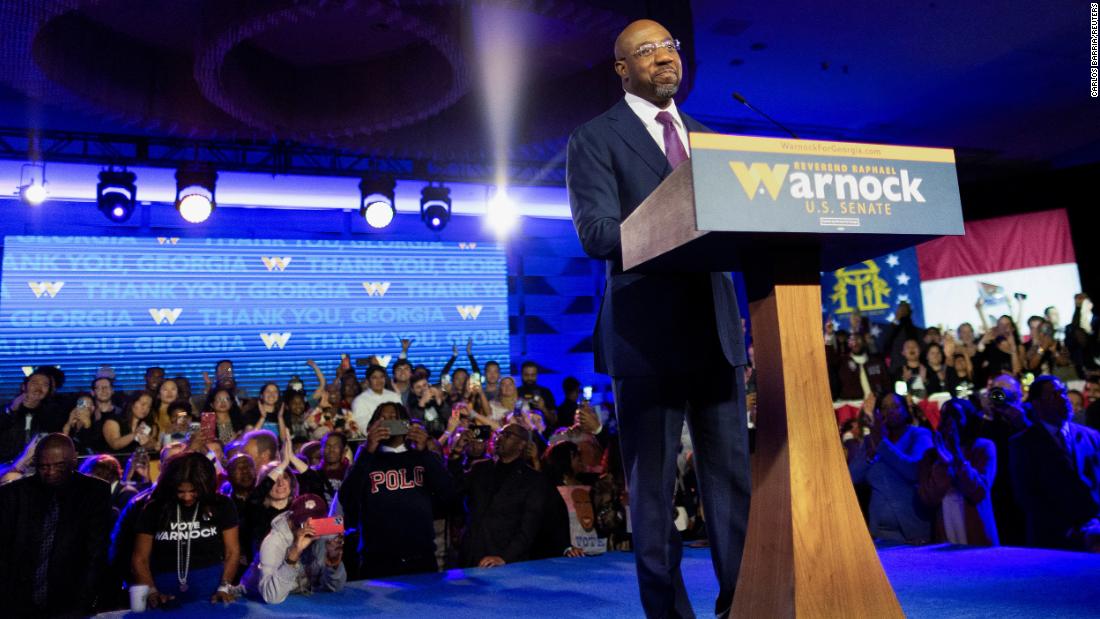Protests erupt in Russia's Dagestan region over mobilization
39 min agoAnalysis: US warnings against Putin's nuclear threats mark a sobering moment for the worldFrom CNN's Stephen CollinsonThat the United States should be forced to warn Russia publicly, and in more strident terms privately, not to use nuclear weapons is a mark of how dangerous the battle for Ukraine has become -- and how much more risky it might get.The war is in a critical new phase. Kyiv's forces have won victories in the east using billions of dollars in Western-provided arms and Russian President Vladimir Putin has responded by pouring thousands more men onto the frontlines.Facing increasing political pressure at home, isolation abroad and battlefield humiliations, the Russian leader ratcheted up his nuclear brinkmanship last week in warning that he could use all weapons systems available to him if he considered Russia's territorial integrity under threat.Putin's rhetoric was a reminder that the better the war goes for Ukraine, the more the West will need to keep its nerve, especially if the Russian leader becomes more boxed in and tries to scare his foes with Russia's best leverage -- its nuclear arsenal.Many Western observers believe Putin is bluffing and that there are strategic reasons for Moscow to stop short of this fateful step. There are no public reports that the Kremlin is readying its stock of battlefield nuclear weapons for use or that it has changed the posture of its international strategic missiles. And Putin has played the nuclear card before in the conflict in an apparent effort to frighten Western publics and to fracture support for Kyiv in the transatlantic alliance.But at the same time, the Russian leader has gone all in on a war that he cannot afford to lose but that is going increasingly badly for Russia, as last week's partial national mobilization showed. He is in a corner, a reality that may explain his return to nuclear scare tactics. And while Putin's political position doesn't seem immediately threatened, he's facing increasing dissent at home and appears consumed by fury against the US and the West that is vehement even for him. Putin is led by a sense of historic mission rooted in a desire to restore respect for Russia as a great civilization. He has already shown callous indifference to human and civilian life in Ukraine. Such conditions mean clear strategic thinking and rational decisions cannot be taken for granted, especially since the ruthless Russian leader's sense of caution deserted him with his reckless leadership of the war in Ukraine.You can read Collinson's full analysis here.58 min agoPresident of Finland, who has a long working relationship with Putin, doubts he will accept "any kind of defeat"President Sauli Niinistö of Finland warned Sunday of a dangerous moment in the Ukraine war, with Russian President Vladimir Putin having invested so much credibility in an invasion that has turned against him."He has put all in," Niinistö told CNN's Fareed Zakaria."He is a fighter, so it is very difficult seeing him accepting any kind of defeat and this surely makes the situation very critical."Niinistö's comments come as Finish border officials reported more than 8,500 Russians travelled into Finland by land on Saturday. “Saturday 8,572 Russians arrived to Finland via Finnish Russian land border. Week ago Saturday 5,286 entered,” said Matti Pitkäniitty, the head of the International Affairs Unit at Finnish Border Guard, in a post on social media Sunday. Saturday’s number is a 62% increase compared to last Saturday’s, Pitkäniitty said. The border crossing of Vaalimaa in south east Finland was the busiest crossing point for Russians coming into the country, Pitkäniitty said in another post Sunday.“Sunday morning queue at 08.00 Finnish time [1 a.m. ET] approximately 500 m,” he added.The increase in Russians entering Finland comes after Russian President Vladimir Putin on Wednesday significantly raised the stakes of his assault on Ukraine for ordinary Russians, with the announcement of an immediate "partial mobilization" in a bid to reinforce his faltering invasion following Ukrainian gains.1 hr 40 min agoProtests erupt in Russia's Dagestan region over mobilizationFrom Josh PenningtonSeveral videos posted to social media that CNN has geo-located to Russia's Dagestan region depict heated protests against the mobilization Sunday.In the regional capital of Makhachkala, women are seen outside a theatre pleading with police: "Why are you taking our children? Who attacked who? It's Russia that attacked Ukraine!"In another video in Endirei, a police officer is seen shooting his rifle into the air in an apparent attempt to try to disperse the crowd.People are seen in Makhachkala being violently detained while others flee the police on foot past a restaurant. Independent Russian monitoring group OVD-Info has reported that several arrests have already been made, including that of Murad Muradov, a local journalist who was reporting on the day's protests. The city's mayor called
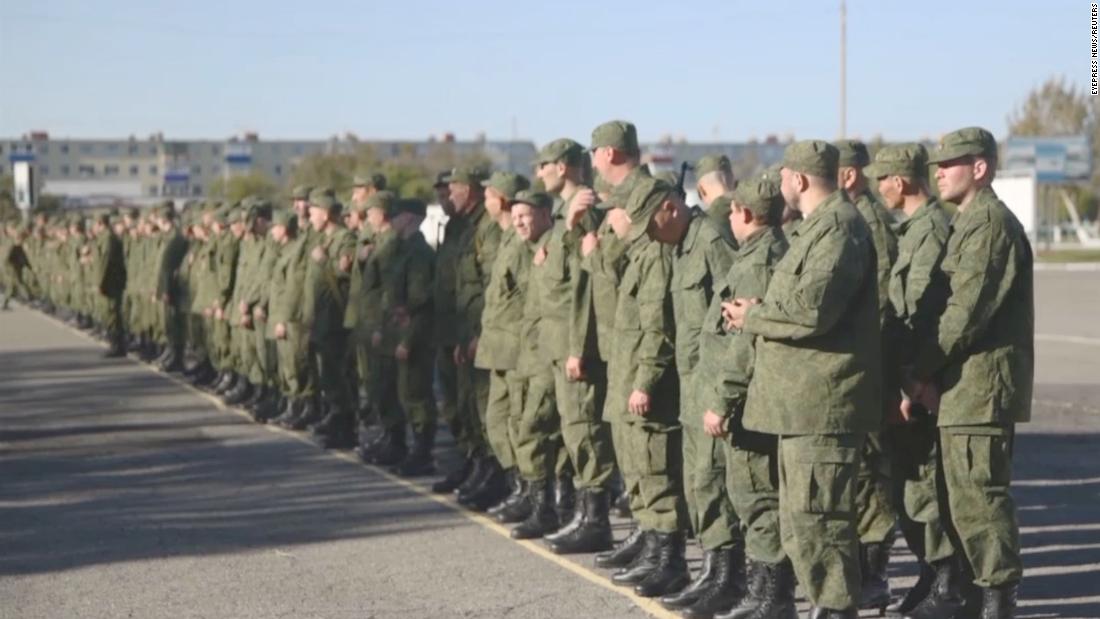
Analysis: US warnings against Putin's nuclear threats mark a sobering moment for the world
From CNN's Stephen Collinson
That the United States should be forced to warn Russia publicly, and in more strident terms privately, not to use nuclear weapons is a mark of how dangerous the battle for Ukraine has become -- and how much more risky it might get.
The war is in a critical new phase. Kyiv's forces have won victories in the east using billions of dollars in Western-provided arms and Russian President Vladimir Putin has responded by pouring thousands more men onto the frontlines.
Facing increasing political pressure at home, isolation abroad and battlefield humiliations, the Russian leader ratcheted up his nuclear brinkmanship last week in warning that he could use all weapons systems available to him if he considered Russia's territorial integrity under threat.
Putin's rhetoric was a reminder that the better the war goes for Ukraine, the more the West will need to keep its nerve, especially if the Russian leader becomes more boxed in and tries to scare his foes with Russia's best leverage -- its nuclear arsenal.
Many Western observers believe Putin is bluffing and that there are strategic reasons for Moscow to stop short of this fateful step. There are no public reports that the Kremlin is readying its stock of battlefield nuclear weapons for use or that it has changed the posture of its international strategic missiles. And Putin has played the nuclear card before in the conflict in an apparent effort to frighten Western publics and to fracture support for Kyiv in the transatlantic alliance.
But at the same time, the Russian leader has gone all in on a war that he cannot afford to lose but that is going increasingly badly for Russia, as last week's partial national mobilization showed. He is in a corner, a reality that may explain his return to nuclear scare tactics. And while Putin's political position doesn't seem immediately threatened, he's facing increasing dissent at home and appears consumed by fury against the US and the West that is vehement even for him.
Putin is led by a sense of historic mission rooted in a desire to restore respect for Russia as a great civilization. He has already shown callous indifference to human and civilian life in Ukraine. Such conditions mean clear strategic thinking and rational decisions cannot be taken for granted, especially since the ruthless Russian leader's sense of caution deserted him with his reckless leadership of the war in Ukraine.
You can read Collinson's full analysis here.
President of Finland, who has a long working relationship with Putin, doubts he will accept "any kind of defeat"
President Sauli Niinistö of Finland warned Sunday of a dangerous moment in the Ukraine war, with Russian President Vladimir Putin having invested so much credibility in an invasion that has turned against him.
"He has put all in," Niinistö told CNN's Fareed Zakaria.
"He is a fighter, so it is very difficult seeing him accepting any kind of defeat and this surely makes the situation very critical."
Niinistö's comments come as Finish border officials reported more than 8,500 Russians travelled into Finland by land on Saturday.
“Saturday 8,572 Russians arrived to Finland via Finnish Russian land border. Week ago Saturday 5,286 entered,” said Matti Pitkäniitty, the head of the International Affairs Unit at Finnish Border Guard, in a post on social media Sunday.
Saturday’s number is a 62% increase compared to last Saturday’s, Pitkäniitty said.
The border crossing of Vaalimaa in south east Finland was the busiest crossing point for Russians coming into the country, Pitkäniitty said in another post Sunday.
“Sunday morning queue at 08.00 Finnish time [1 a.m. ET] approximately 500 m,” he added.
The increase in Russians entering Finland comes after Russian President Vladimir Putin on Wednesday significantly raised the stakes of his assault on Ukraine for ordinary Russians, with the announcement of an immediate "partial mobilization" in a bid to reinforce his faltering invasion following Ukrainian gains.
Protests erupt in Russia's Dagestan region over mobilization
From Josh Pennington
Several videos posted to social media that CNN has geo-located to Russia's Dagestan region depict heated protests against the mobilization Sunday.
In the regional capital of Makhachkala, women are seen outside a theatre pleading with police: "Why are you taking our children? Who attacked who? It's Russia that attacked Ukraine!"
In another video in Endirei, a police officer is seen shooting his rifle into the air in an apparent attempt to try to disperse the crowd.
People are seen in Makhachkala being violently detained while others flee the police on foot past a restaurant.
Independent Russian monitoring group OVD-Info has reported that several arrests have already been made, including that of Murad Muradov, a local journalist who was reporting on the day's protests.
The city's mayor called for calm Sunday.
"I urge you not to commit illegal acts, each of which will be assessed by the law enforcement agencies for legal consequences. Do not succumb to the provocations of persons engaged in anti-state activities," Mayor Salman Dadayev said according to Russian state news agency RIA Novosti.
Some context: The events in Dagestan come on the heels of mass anti-mobilization protests across Russia after Putin announced a partial mobilization last Wednesday. According to OVD-Info, more than 2,000 people have already been arrested across Russia since the announcement.
What Giorgia Meloni's victory in the Italian election could mean for the war in Ukraine
From CNN's Kara Fox and Luke McGee
Addressing the media and supporters in the early hours of Monday morning, Giorgia Meloni claimed victory in a general election that seems set to install her as Italy's first female prime minister, leading the most far-right government since the fascist era of Benito Mussolini.
Final results are expected later Monday but preliminary results put an alliance of far-right parties, led by Meloni’s Brothers of Italy party, on track to win at least 44% of the vote, according to the Italian Interior Ministry.
With 63% of votes counted, the ultra-conservative Brothers of Italy party had won at least 26%, with coalition partners the League, led by Matteo Salvini, taking around 9% and Silvio Berlusconi's Forza Italia scoring over 8%.
Why this matters: While Meloni differs from her fellow coalition partner leaders on the issue of Ukraine, both Berlusconi and Salvini have both said they would like to review sanctions against Russia because of their impact on the Italian economy.
And while Meloni has been steadfast in her support for defending Ukraine, both Salvini and Berlusconi have historically been friendly to Russian President Vladimir Putin. Salvini once wore a shirt with Putin's face emblazoned on it and, in 2014, CNN reported on Berlusconi's "bromance" with the authoritarian leader.
Many of Europe's populist leaders have moved to distance themselves from Putin in the time since his invasion of Ukraine. But it remains to be seen what a more skeptical governing coalition would mean for Italy's previously ironclad support for the embattled nation.
Claims circulating of those not eligible for mobilization being conscripted "by mistake"
From CNN's Katharina Krebs, Radina Gigova, Simone McCarthy and Sana Noor Haq
Russia's "partial mobilization" for its war in Ukraine is off to a chaotic start amid protests, drafting mistakes and an exodus of citizens fleeing Russia, as the Kremlin tightens rules around evading military orders.
Some residents in Russia's Far East Sakha Republic were conscripted "by mistake" despite not being eligible for mobilization, according to a local leader.
"All who were mobilized by mistake must be returned back. This work has already begun," the republic's head Aisen Nikolaev said in a Telegram post, following a meeting on the presidential decree on partial mobilization.
"Such extremes are absolutely unacceptable. And, in my opinion, the harsh reaction we are seeing in society is deserved," Valentina Matviyenko, the speaker of Russia's Federation Council, said in a post on Telegram.
In a direct address to Russia's regional governors, Matviyenko said they were "fully responsible for carrying out mobilization campaigns" in "full and absolute compliance with the announced criteria."
Vyacheslav Volodin, the chairman of the State Duma, Russia's lower house of parliament, echoed Matviyenko's calls for due diligence, adding, "If a mistake is made, it must be corrected."
Meanwhile, videos circulating on Russian social media appear to reveal the tensions, sadness and confusion that the draft -- which began after a Wednesday announcement -- has sparked, with scenes of families saying emotional goodbyes and others of recruits arguing about being called up.
Some background: Russian President Vladimir Putin on Wednesday significantly raised the stakes of his assault on Ukraine for ordinary Russians, with the announcement of an immediate "partial mobilization" in a bid to reinforce his faltering invasion following Ukrainian gains.
The mobilization would only affect Russians with previous military experience, according to Defense Minister Sergei Shoigu, who said 300,000 reservists would be called up. However, the decree itself gives much broader terms, sowing fears among Russians of a wider draft in the future.
Activist groups, such as Free Buryatia Foundation, have said ethnic minorities in Russia are being disproportionately mobilized. CNN has geolocated videos of some of these men being mobilized in Russia's Far East regions
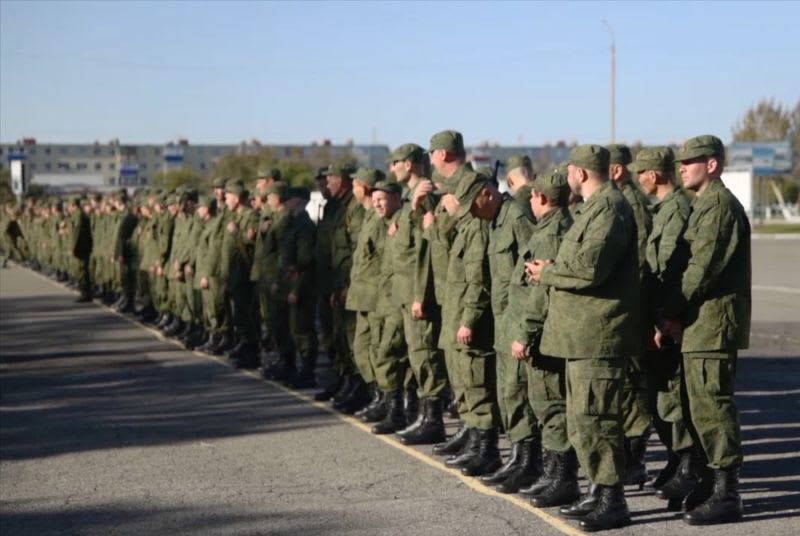
British leader: Russian military escalation and "bogus threats" show Putin has been "outsmarted"
From CNN's Sana Noor Haq
Vladimir Putin’s announcement of increased military conscription to bolster Moscow’s faltering invasion of Ukraine shows the Russian President “has been outsmarted” by Kyiv, Britain's Prime Minister Liz Truss told CNN in an exclusive interview.
The new leader, who takes power at a time of historic upheaval, told CNN’s Jake Tapper on “State of the Union” that Putin had ordered an immediate military escalation “because he isn’t winning.”
“He made a strategic mistake, invading Ukraine,” Truss said in her first interview with a US network, which aired Sunday.
“I think he has been outsmarted by the Ukrainians. We’ve seen the Ukrainians continue to push back against the Russian offensive. And I think he didn’t anticipate the strength of reaction from the free world.”
Truss, who faces perhaps the biggest set of challenges of any incoming British prime minister since Winston Churchill, met with US President Joe Biden on Wednesday.
In a subsequent interview at 10 Downing Street, she told CNN that Washington “is an incredibly close partner” but did not roll back controversial comments she made last year, while UK Foreign Secretary, in which she described the US-UK relationship as “special but not exclusive.”
“I do think our relationship is special and it’s increasingly important at a time when we’re facing threats from Russia, increased assertiveness from China. You know, we are both freedom-loving democracies. We have such a strong connection,” she told Tapper.
When asked how Western leaders should respond if Putin ramps up military activity in Ukraine, Truss said they “should not be listening to his saber-rattling and his bogus threats.”
“Instead, what we need to do is continue to put sanctions on Russia and continue to support the Ukrainians.”
Read more here.
US warns of “catastrophic” consequences if Russia uses nuclear weapons in Ukraine
From CNN's Sam Fossum and Priscilla Alvarez
White House National Security Adviser Jake Sullivan promised Sunday that there would be "catastrophic" consequences if Russia used a nuclear weapon in Ukraine and said the US will enact further economic sanctions against Russia if the Kremlin completes its "sham" referendums.
"If Russia crosses this line, there will be catastrophic consequences for Russia. The United States will respond decisively. Now in private channels, we have spelled out in greater detail exactly what that would mean," Sullivan told Chuck Todd on NBC's "Meet The Press."
On further consequences against Russia for the referendums in occupied Ukrainian territories, Sullivan pointed to the G7 leaders’ statement from Friday and said there will be more announcements from the US in the days ahead.
"They reiterated that there would be consequences and specified that that would include additional enhanced sanctions, including sanctions on entities and companies outside of Russia that are supporting the Russian war machine or supporting these fake referenda or Russia's efforts," Sullivan said.
In an interview on ABC “This Week”, Sullivan also said the US is planning “for every contingency.”
“We want to lay down the principle that there will be catastrophic consequences, but not engage in a game of rhetorical tit for tat. So, the Russians understand where we are, we understand where we are, we are planning for every contingency, and we will do what is necessary to deter Russia from taking this step. And if they do, we will respond decisively,” Sullivan said.
Asked about ongoing protests in Russia, Sullivan said the US is focused on continuing to support Ukraine: “The future of Russia is for the Russian people to decide."
"I don’t want to die for someone else’s ambitions": How some Russian men fled conscription
From CNN's Uliana Pavlova
Tension was in the air as a long trail of cars lined up near the Petkuhovo checkpoint on the border between Russia and Kazakhstan late Friday night.
Andrei Alekseev, a 27-year-old engineer from the city of Yekaterinburg, was among many men in the queue who were fleeing Russia in the wake of President Vladimir Putin’s mobilization orders.
Cars had to go through Russian and Kazakh border checks, both of which lasted about two hours.
Alekseev woke up to the news of Putin’s mobilization order Wednesday morning and knew he had to flee Russia. He met up with his friends that night to discuss their next steps and decided to avoid taking any risks and to leave Russia with no plan in mind.
“At the border, all the men were asked whether they served in the army and what is their military service category,” Alekseev told CNN.
“I felt that the border guards were very understanding, however, I had friends who crossed the border to Kazakhstan at a different checkpoint and they were met with grueling questions, it took them seven hours to cross,” he told CNN.
Kirill Ponomarev, 23, who also fled Russia via a Kazakhstan border, said he struggled to book a ticket. The night before Putin’s address he was looking up tickets out of Russia.
“For some reason, I couldn’t buy a ticket, the night before while waiting for Putin’s speech. And then I fell asleep without buying a ticket, when I woke up, ticket prices jumped,” Ponomarev told CNN.
Men rushed to the borders, exchanging tips on Telegram channels and among friends. One-way flights out of Russia sold out within hours of the mobilization announcement.
Four of the five European Union countries bordering Russia have banned entry for Russians on tourist visas, while queues to cross land borders out of Russia to the former Soviet countries Kazakhstan, Georgia and Armenia take over 24 hours to cross.
You can read Pavlova's full report here.
Putin signs amendments cracking down on dissent during mobilization
From CNN's Katharina Krebs and Radina Gigova
Russian President Vladimir Putin has signed several amendments to the country's criminal code, making wartime punishments for various offenses more severe.
Under the amendments, published Saturday on the government's legal portal, crimes such as refusing to follow the orders of a senior officer during wartime, during an armed conflict or combat operations -- or the refusal to participate in military or combat operations during such times -- may result in jail terms of up to 10 years.
"The federal law also introduces criminal liability for military personnel for voluntary surrender, as well as criminal liability for looting during martial law, in wartime or in conditions of armed conflict or combat operations," according to a statement by the Kremlin about the amendments.
The punishment for those sentenced to imprisonment for committing especially grave crimes can now be replaced by forced labor or another milder type of punishment only after at least two-thirds of the imprisonment term has been served, the Kremlin statement said.
The Russian President also signed a law that would punish the violation of the terms of a state contract in the field of state defense, especially if such violation caused damage to the state in the amount of at least 5% of the contract price and at least 5 million rubles (about $86,000), as well as failure to fulfill the contract.
Exemption from punishment is possible "if violations are voluntarily eliminated," the Kremlin statement says.
Some context: In the wake of Ukraine's successful counteroffensive this month, Putin and Russian authorities have taken a series of steps to bolster the country's faltering military and clamp down on dissent at home.
Some 300,000 reservists have been called into military service in what Putin terms a "partial mobilization."
More than 2,000 anti-war protesters have been detained in cities across Russia since the announcement, with some directly conscripted into the military, according to a monitoring group. The punishment in Russia for refusing the draft is now 15 years in jail.

 Landwebs
Landwebs 







